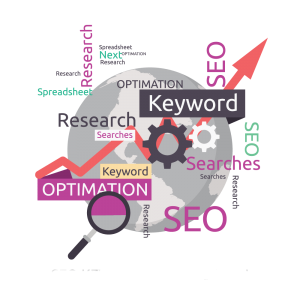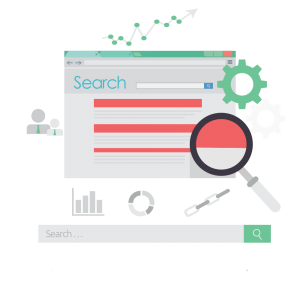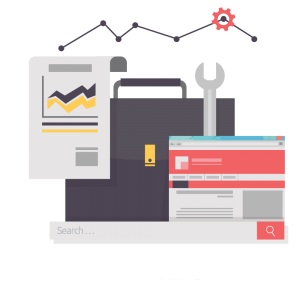In this post, we will discuss the factors that influence how long SEO takes to work. If you’re wondering why your site’s ranking is stagnant or what you can do about it, then look no further! We’ll cover a number of factors that determine how quickly websites rank on search engines and explain some things you can do to make changes more quickly.
Contents
What is SEO?
SEO, or search engine optimisation, is the process of improving the ranking of a website on search engines. The higher a website ranks, the more likely people are to find it.
Many factors influence how long SEO takes to work and see results. In this post, we’ll cover the most important ones:
- Keyword Research
- Domain age
- Site architecture
- High-Quality Content
- On-page optimisation
- Link building
- Internal Linking
- Branding
- Technical SEO
Each of these factors will be discussed in detail below.
Keyword Research
The first step in most SEO strategies is keyword research. There are two main reasons for this:
- To help identify the content you should be creating
- For use in optimising your site architecture and backlink building efforts
 It’s important to do enough research at this stage because it will inform every other decision that comes after, so don’t just rush through it! You can follow a simple process like the one outlined here.
It’s important to do enough research at this stage because it will inform every other decision that comes after, so don’t just rush through it! You can follow a simple process like the one outlined here.
If you’re not sure where to start with keywords, tools such as SEMrush and Ahrefs are available to help narrow down ideas based on search volume data (the more searches there are per month, the better). They also provide useful information about the average cost per click and competition.
The next step is to choose a keyword or set of keywords that you want your website to rank for. You also have to take into consideration the intent of the keywords and keyword clustering. You can use tools like SEMrush or Ahrefs for this too.
Domain Age
The age of a domain name is one factor that Google uses to determine how high a website will rank. Older domains have been around longer and thus have accumulated more trust from the search engine algorithm, making it easier for a site to rank on them.
When working with a domain that is less than five years old there are no shortcuts when building links either because Google also takes into consideration how many websites link to your content as well as where they’re linking from.
If you try to buy links or get free ones, you’ll likely end up with a penalty which could seriously harm your rankings. Plus, buying/building spammy backlinks can make things worse by reducing page quality scores even further!
Site Architecture
The architecture of a website plays an important role in how quickly it can be optimised. Having a well-structured site that is crawlable by Google’s bots makes it easier to rank, especially if you’re trying to do SEO on new or very small sites which are difficult for the search engine algorithms to index.
If your site isn’t being indexed properly, then none of your optimisation efforts will pay off even after they’ve been implemented. This includes optimizing URLs and redirecting them so that they work without any problems as well as creating sitemaps that list all pages/posts on your site so that bots can easily find them.
High-Quality Content
While content quality is subjective, there are some basic guidelines you should follow to make sure your SEO is effective. This includes making sure your content is well-written, informative, and relevant to your target audience.
In addition, you should also aim for a healthy mix of long-form and short-form content on your website. Longer form content tends to rank better because it’s more comprehensive and provides more value to the reader. However, don’t neglect shorter posts – they can still be valuable if they’re properly optimised.
On-Page Optimisation
Optimizing pages for SEO involves optimising the following elements:
- Title tags
- Meta descriptions
- H tags (header tags)
- Images
 All of these elements play an important role in how well a page ranks on Google. For example, title tags are used in search engine results pages (SERPs) to provide an accurate description of the content found on each particular link.
All of these elements play an important role in how well a page ranks on Google. For example, title tags are used in search engine results pages (SERPs) to provide an accurate description of the content found on each particular link.
Meta descriptions also play a key role by providing searchers with more information about what they’re clicking into and whether or not it’s something that will be useful for them. They encourage readers to click through which is why using spammy keywords isn’t recommended because you could end up with clicks but no conversions!
H tags should include your main keyword(s) so that when users see your site listed below all other sites, they’ll have a greater incentive to visit yours instead since many search engines display these metadata elements directly next to links showing relevant information about their contents.
Finally, images are important for two reasons: they break up text on a page and help to improve the overall user experience. However, you should also make sure that all your images are properly optimised with keywords and alt text so that they can be found by search engine crawlers.
Link Building
One of the most important aspects of SEO is link building. To rank higher, your website needs links from other websites with high authority. The more high-quality links you have pointing to your content, the easier it will be for Google to determine that your site is worth ranking higher.
Internal Linking
Internal linking refers to the act of linking one page on your website to another. This is the best way to pass value from one page of your site to another by directing users and search engine crawlers through links.
Outbound Link Building
Outbound linking is the opposite – you’re passing link equity away from your website instead of giving it more! This should be avoided as much as possible because you want all other websites pointing back at yours, not vice versa.
When outbound linking, try finding relevant and authoritative sites that reinforce your content or are being used as a reputable source.
Branding
Branding is an important part of SEO that often goes overlooked. When done correctly, branding can help to improve click-through rates (CTRs), organic search traffic, and even conversions.
There are many different ways to go about branding your website, but the most important thing is to make sure it’s consistent across all channels. This includes social media profiles, email marketing campaigns, and of course – your website itself!
If you’re not sure where to start when it comes to branding your business online, consider hiring a professional who can help you create a cohesive strategy that will work well for your unique needs.
Technical SEO
Technical SEO is the process of optimising a website’s code and structure to improve its visibility and usability for search engines. This often includes fixing errors, ensuring proper indexing, and improving site speed.
While all businesses don’t need to focus on technical SEO, it can be incredibly helpful for those who are struggling to rank well due to website errors or a lack of optimisation.
If you’re interested in learning more about technical SEO or would like help getting started, consider hiring an experienced professional who can audit your website and make recommendations based on their findings.
How To Measure SEO Results
 SEO is a very complex process that can be difficult to measure at times. The best way to accurately measure your results is by using Google Analytics, Google Search Console, Rank Trackers, and other tools to track changes over time.
SEO is a very complex process that can be difficult to measure at times. The best way to accurately measure your results is by using Google Analytics, Google Search Console, Rank Trackers, and other tools to track changes over time.
While it may seem like there’s no rhyme or reason behind whether you’re ranking higher than before, the truth is that search engine algorithms are constantly changing and this requires websites to continuously work towards improving their visibility across all platforms.
When measuring SEO success, it’s important not only to look at rankings but also traffic sources through analytics so you know which keywords are driving sales and conversions!
This will allow you further insight into how well your website performs with certain content types vs others. Keep in mind though that these are just guidelines, and there is no one-size-fits-all approach when it comes to SEO.
How to Know If Your SEO Campaign Has Been Successful
There are a few key things to look for to determine whether or not your SEO campaign has been successful. This includes an increase in organic search traffic, better rankings across all platforms, and an overall improvement in website visibility.
If you’re seeing positive changes in any of these areas, then chances are your SEO efforts are paying off! However, it’s important to note that SEO is a long-term strategy and results may take time to materialise.
SEO takes time to work – but the benefits can be huge! By focusing on quality content, internal linking, branding, and technical optimisation, you’ll be well on your way to improving your website’s visibility and. And remember – always measure your success by looking at not just your rankings but also traffic sources!
Common Mistakes That Can Hurt Your Search Engine Rankings
There are a few common mistakes that can hurt your website’s visibility and search engine rankings. This includes not having a sitemap, indexing errors, low-quality content, and using the wrong keywords.
If you’re making any of these mistakes, it’s important to fix them as soon as possible to improve your chances of ranking well. Remember that SEO is an ongoing process, so don’t get discouraged if you don’t see results overnight!
SEO FAQ
How long does SEO take to work?
It can often take a few months for SEO efforts to start showing results. However, the benefits of good SEO are long-term and can continue to improve over time.
What’s the best way to measure my SEO success?
The best way to measure your SEO success is by using Google Analytics and other tools to track changes over time. This will help you better understand how well your website is performing with certain keywords or content types.
Are there any common mistakes that can hurt my search engine rankings?
 Yes, there are a few common mistakes that can hurt your website’s visibility and search engine rankings. This includes not having a sitemap, indexing errors, low-quality content, or using the wrong keywords.
Yes, there are a few common mistakes that can hurt your website’s visibility and search engine rankings. This includes not having a sitemap, indexing errors, low-quality content, or using the wrong keywords.
If you’re making any of these mistakes, it’s important to fix them ASAP.
Why Is SEO Important?
SEO is important because it helps you improve your website’s visibility and rankings across all search engines. This can help you attract more visitors to your site, which can result in more sales and conversions.
SEO is also a long-term strategy, so the benefits can continue to increase over time. If you’re not doing SEO already, it’s definitely something worth considering!
How Much Does SEO Cost?
SEO pricing can vary from company to company, but some factors will affect the overall price of your campaign such as the competition, the number of pages to rank, and the amount of high-quality content and links required.
The best way to get an accurate quote is by speaking directly with a professional about your specific needs and goals.
How Many Google Ranking Factors Are There?
There are over 200 Google ranking factors.
We Offer SEO Services Nationwide
- Chester:https://mediakynect.co.uk/seo-chester/
- Wirral: https://mediakynect.co.uk/seo-wirral/
- Liverpool: https://mediakynect.co.uk/seo-liverpool/
- London: https://mediakynect.co.uk/seo-london/
- Kent: https://mediakynect.co.uk/seo-kent/
- Wrexham: https://mediakynect.co.uk/seo-wrexham/
Conclusion
SEO can take a while to work properly, and it’s important to be patient. However, if you’re following best practices and have high-quality content, then you should see results within a few months.
A local SEO campaign will typically take between 6 months and a year to rank, but a highly competitive term in a big city might take one year or even two years.
Stay diligent with your SEO efforts and continue producing valuable content – the payoff will be worth it in the end!

